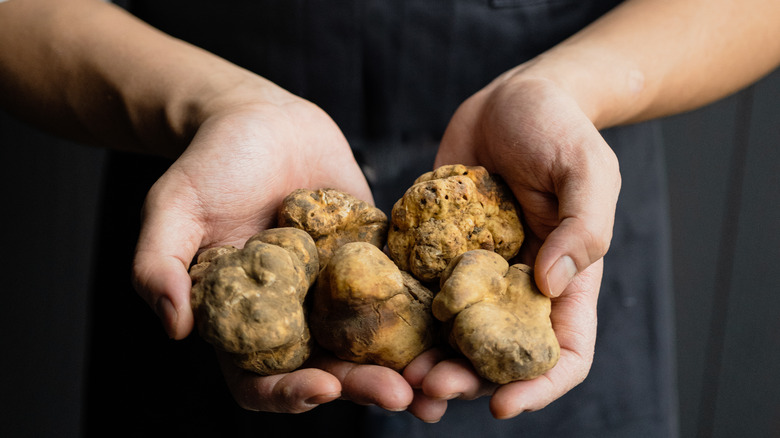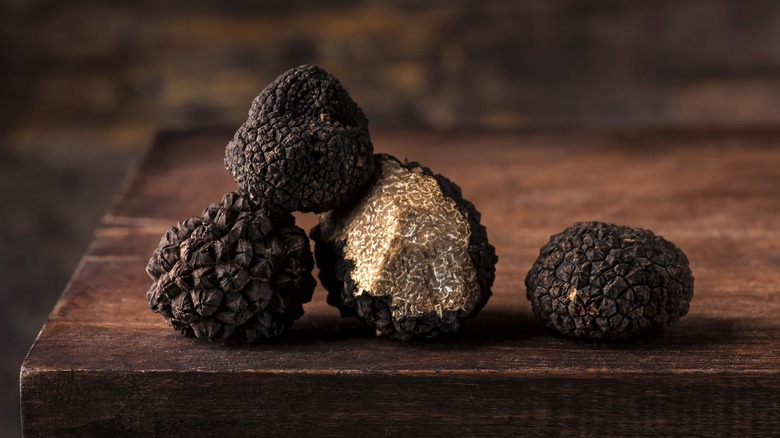The Fancy Ingredient You Will Ruin If You Roast It
As delicious as roasted ingredients might be — just imagine the right touch of smoke, the sweetness of caramelization, a perfectly crisp edge — not every food should be set on top of your grill or left to cook in your oven. This is especially true for delicate, expensive, and often hard to find white truffles. These luxurious pieces of indulgence shouldn't be placed anywhere near heat. As creative as you might want to get by sneaking Alba truffles into your grilled cheese sandwiches, the heat from the pan has the potential to devastate the unique aromatic essence these truffles are known for.
While home chefs will get more forgiveness working with black winter truffles, the lighter varieties are less amenable to cooking techniques. Anytime you're opening up your wallet and shelling out the money to purchase truffles, you'll want to give them the rightful attention they deserve. Make sure your intended recipe matches the specific variety you've managed to acquire.
Making the most of truffles
White truffles are best grated or shaved as a garnish to finish your most prized recipes. When the shavings of a truffle land on top of a warmed dish, the aromas indeed become more noticeable, but beyond this quick touch of heat, you won't want to expose these delicate morsels to any additional flames or cook time.
If you'd prefer the kind of truffle that can hold its own in a hearty serving of pasta, for example, look for darker versions like Perigord. These black truffles have a milder flavor and can be more easily incorporated into recipes than their lighter counterparts. Regardless of the variety, all truffle treasures are challenging to grow, so when they do finally end up in your kitchen, you'll want to make sure they remain the star — or at least a significant supporting actor — of the next showy meal you put together.

